
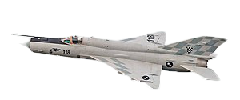
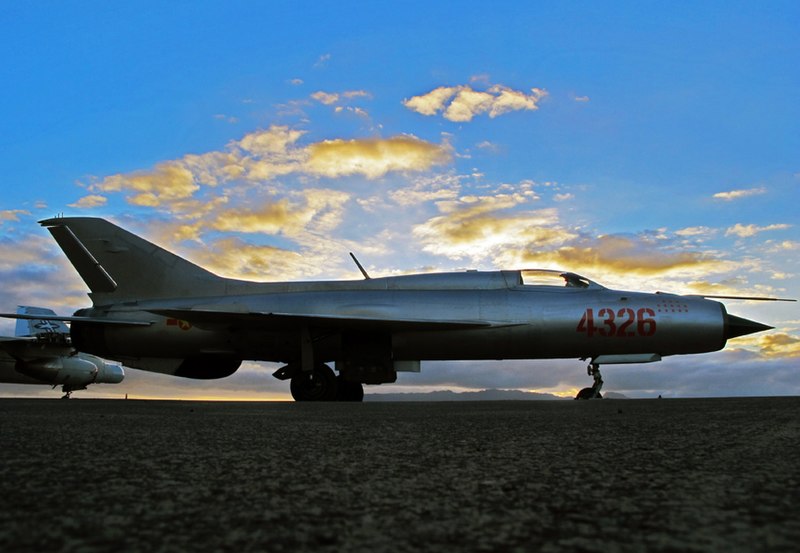
The Mikoyan-Gurevich MiG-21 (Russian: Микоян и Гуревич МиГ-21; NATO reporting name: Fishbed) is a supersonic jet fighter and interceptor aircraft, designed by the Mikoyan-Gurevich Design Bureau in the Soviet Union. Its nicknames include: "balalaika", because its planform resembles the stringed musical instrument of the same name; "Ołówek", Polish for "pencil", due to the shape of its fuselage, and "Én Bạc", meaning "silver swallow", in Vietnamese.
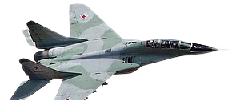
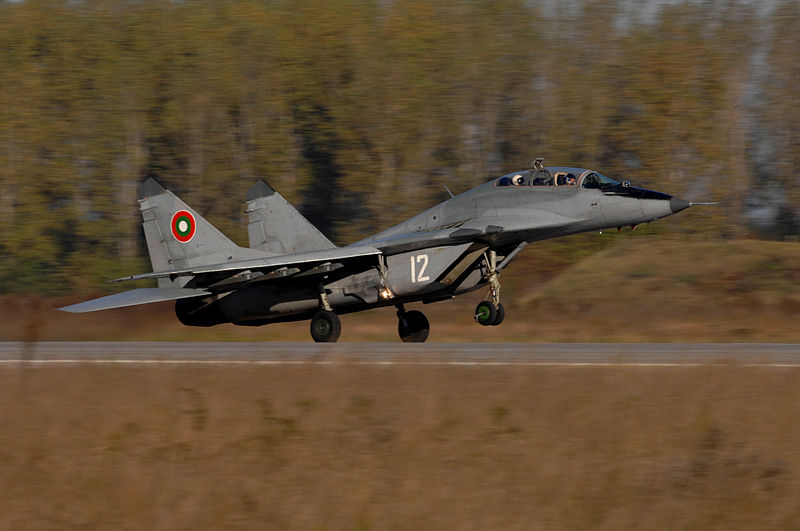
The Mikoyan MiG-29 (Russian: Микоян МиГ-29; NATO reporting name: Fulcrum) is a twin-engine jet fighter aircraft designed in the Soviet Union. Developed by the Mikoyan design bureau as an air superiority fighter during the 1970s, the MiG-29, along with the larger Sukhoi Su-27, was developed to counter new U.S. fighters such as the McDonnell Douglas F-15 Eagle and the General Dynamics F-16 Fighting Falcon. The MiG-29 entered service with the Soviet Air Forces in 1982.
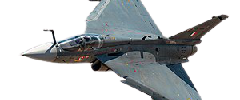

The HAL Tejas is an Indian multirole light fighter designed by the Aeronautical Development Agency (ADA) in collaboration with Aircraft Research and Design Centre (ARDC) of Hindustan Aeronautics Limited (HAL) for the Indian Air Force and Indian Navy. It came from the Light Combat Aircraft (LCA) programme, which began in the 1980s to replace India's ageing MiG-21 fighters but later became part of a general fleet modernisation programme. In 2003, the LCA was officially named "Tejas". It is the smallest and lightest in its class of contemporary supersonic combat aircraft.
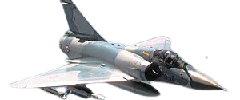
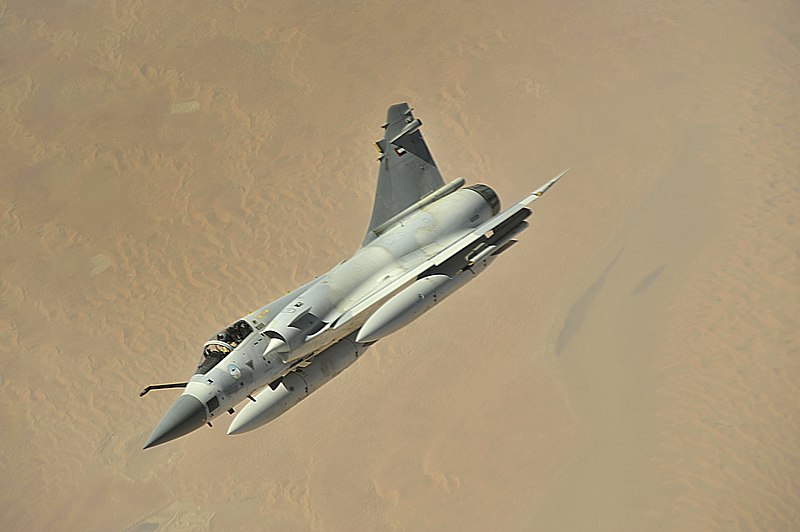
The Dassault Mirage 2000 is a French multirole, single-engine, fourth-generation jet fighter manufactured by Dassault Aviation. It was designed in the late 1970s as a lightweight fighter to replace the Mirage III for the French Air Force (Armée de l'air). The Mirage 2000 evolved into a multirole aircraft with several variants developed, with sales to a number of nations. It was later developed into the Mirage 2000N and 2000D strike variants, the improved Mirage 2000-5, and several export variants. Over 600 aircraft were built and it has been in service with 9 nations.
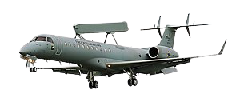
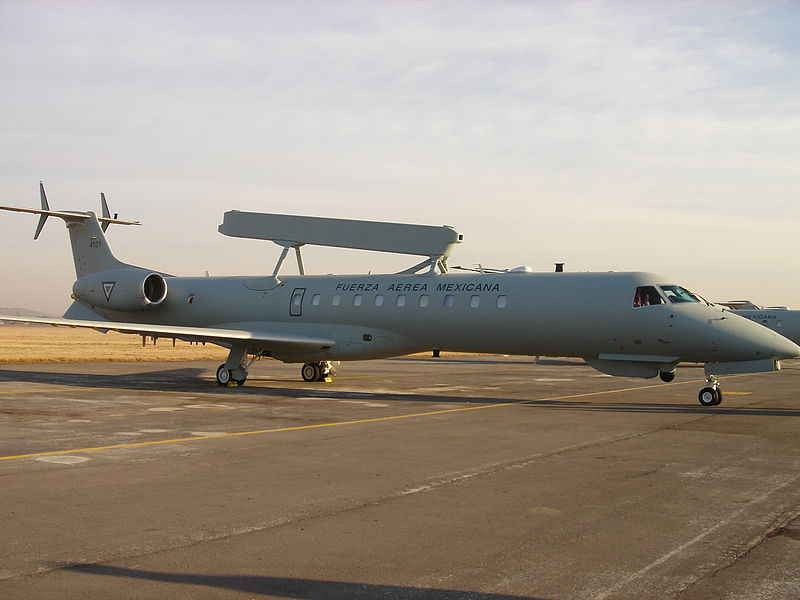
The Embraer R-99 is the Brazilian Air Force military designation of the EMB-145-RS. It is an aircraft based on the ERJ 145 civil regional jet. The R-99 series are equipped with Rolls-Royce AE1 3007 turbofan engines. The military versions provide 20% more thrust than the civil version. The first flight was in 1999.
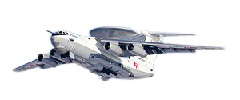
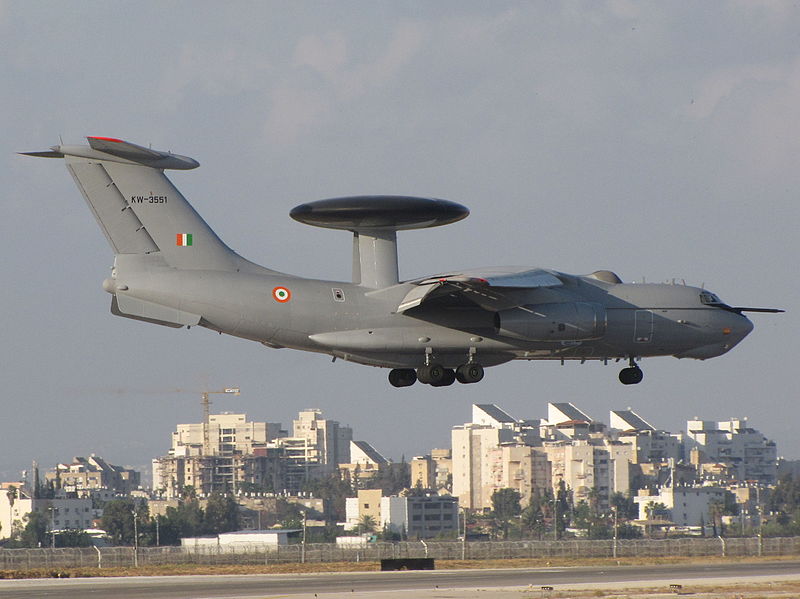
The Beriev A-50 (NATO reporting name: Mainstay) is a Soviet airborne early warning and control (AEW&C) aircraft based on the Ilyushin Il-76 transport. Developed to replace the Tupolev Tu-126 "Moss", the A-50 first flew in 1978. Its existence was revealed to the Western Bloc in 1980 by Adolf Tolkachev. It entered service in 1984, with about 40 produced by 1992.
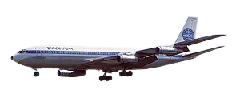
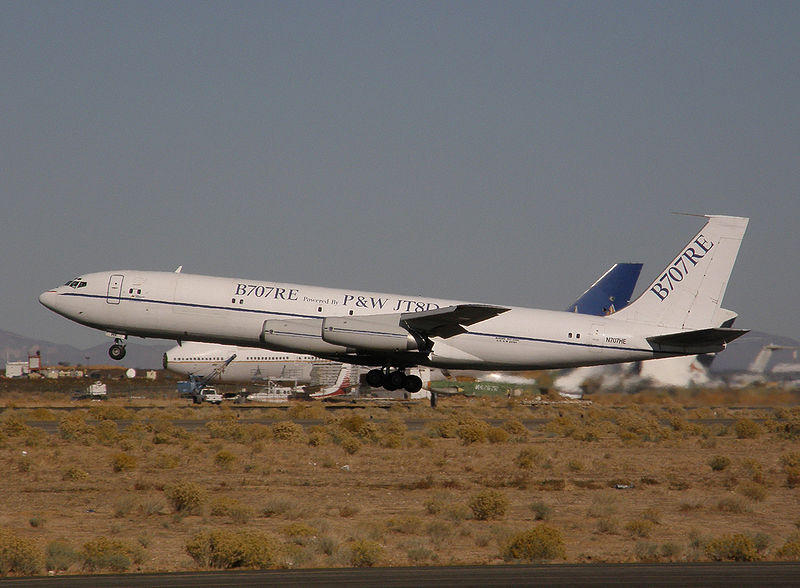
The Boeing 707 is an American long-range narrow-body airliner that was developed and produced by Boeing Commercial Airplanes, its first jetliner. Developed from the Boeing 367-80, a prototype first flown in 1954, the initial 707-120 first flew on December 20, 1957. Pan American World Airways began regular 707 service on October 26, 1958. The airplane was built until 1979. A quadjet, the 707 has a swept wing with podded engines. Its larger fuselage cross-section allowed six-abreast economy seating, retained in the later 720, 727, 737, and 757.

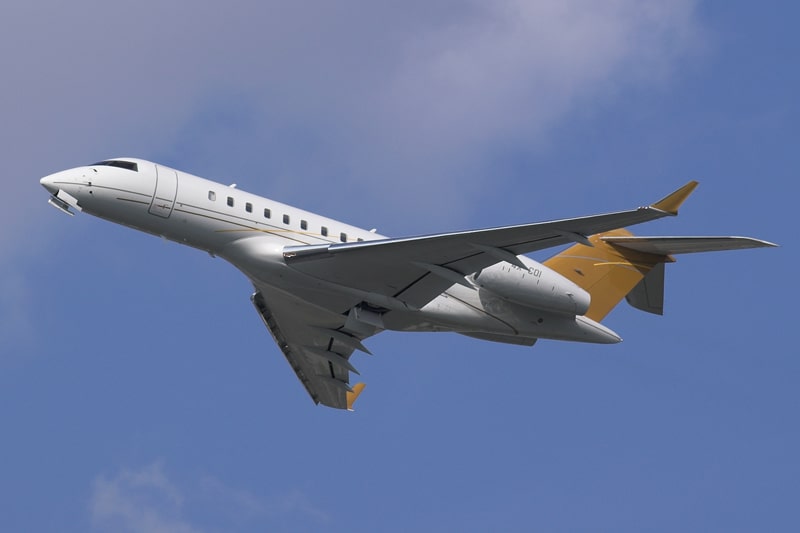
The Bombardier Global Express is a large cabin, 6,000 nmi / 11,100 km range business jet designed and manufactured by Bombardier Aviation (formerly Bombardier Aerospace). Announced in October 1991, it first flew on 13 October 1996, received its Canadian type certification on 31 July 1998 and entered service in July 1999. Initially powered by two BMW/Rolls-Royce BR710s, it shares its fuselage cross section with the Canadair Regional Jet and Challenger 600 with a new wing and tail. The shorter range Global 5000 is slightly smaller and the Global 6000 is updated and has been modified for military missions.
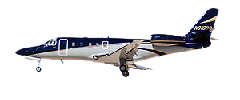
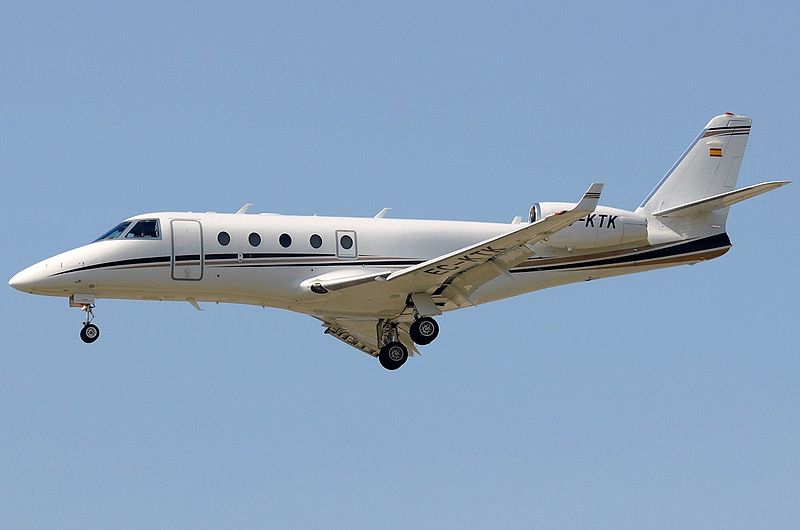
The Gulfstream G100, formerly known as the IAI Astra SPX, is an Israel Aerospace Industries-manufactured twin-engine business jet, that was produced for Gulfstream Aerospace. Deliveries began in 1986. The United States Air Force employs the aircraft as the C-38 Courier. A later derivative known as the G150 was launched in 2002. Gulfstream announced the final sale of the G150 in September 2016 and the last delivery by mid-2017.
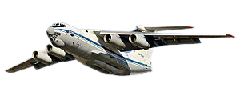
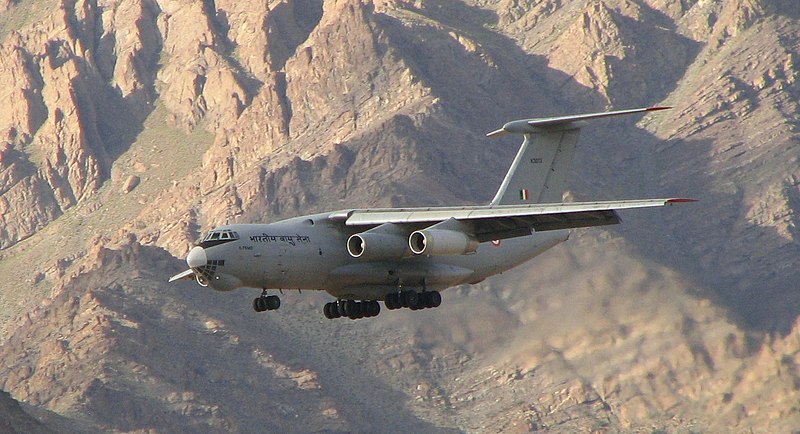
The Ilyushin IL-76 (Russian: Илью́шин Ил-76; NATO reporting name: Candid) is a multi-purpose, fixed-wing, four-engine turbofan strategic airlifter designed by the Soviet Union's Ilyushin design bureau. It was first planned as a commercial freighter in 1967, as a replacement for the Antonov An-12. It was designed to deliver heavy machinery to remote, poorly served areas. Military versions of the Il-76 have been widely used in Europe, Asia and Africa, including use as an aerial refueling tanker or command center.
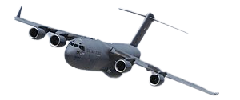
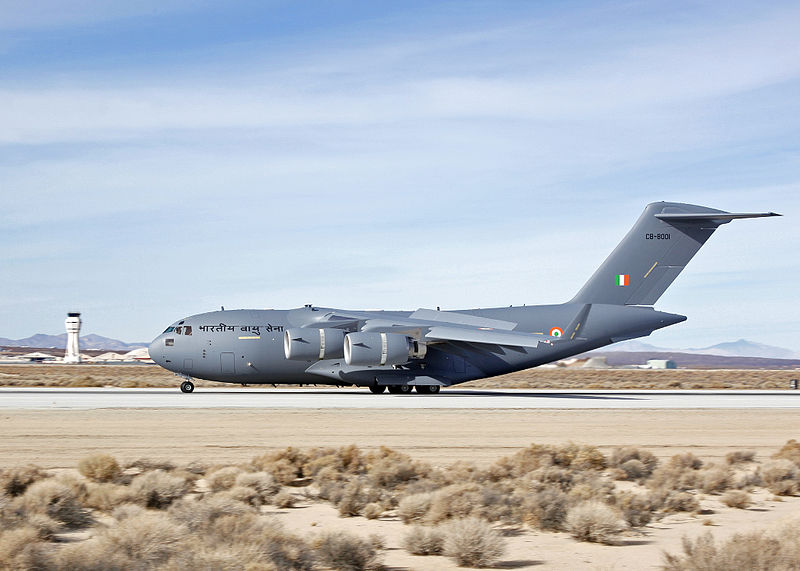
The McDonnell Douglas/Boeing C-17 Globemaster III is a large military transport aircraft that was developed for the United States Air Force (USAF) from the 1980s to the early 1990s by McDonnell Douglas. The C-17 carries forward the name of two previous piston-engined military cargo aircraft, the Douglas C-74 Globemaster and the Douglas C-124 Globemaster II. The C-17 commonly performs tactical and strategic airlift missions, transporting troops and cargo throughout the world; additional roles include medical evacuation and airdrop duties. It was designed to replace the Lockheed C-141 Starlifter, and also fulfill some of the duties of the Lockheed C-5 Galaxy.
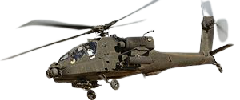
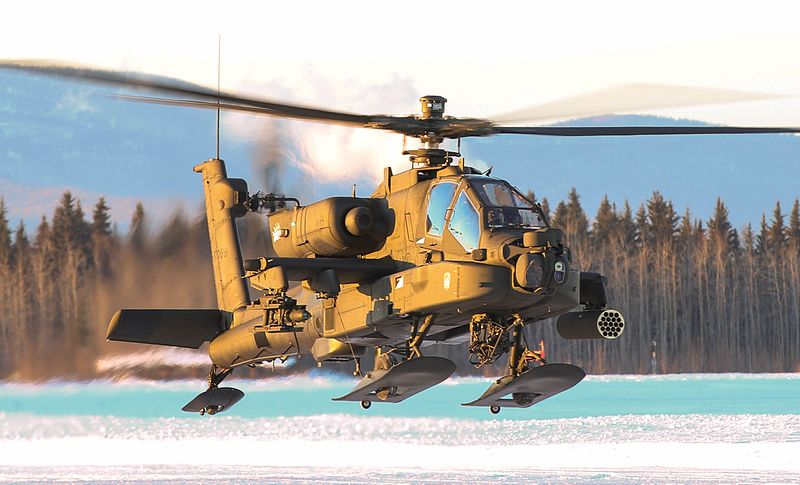
The Boeing AH-64 Apache (/əˈpætʃi/) is an American twin-turboshaft attack helicopter with a tailwheel-type landing gear arrangement and a tandem cockpit for a crew of two. It features a nose-mounted sensor suite for target acquisition and night vision systems. It is armed with a 30 mm (1.18 in) M230 chain gun carried between the main landing gear, under the aircraft's forward fuselage, and four hardpoints mounted on stub-wing pylons for carrying armament and stores, typically a mixture of AGM-114 Hellfire missiles and Hydra 70 rocket pods. The AH-64 has significant systems redundancy to improve combat survivability.
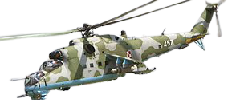
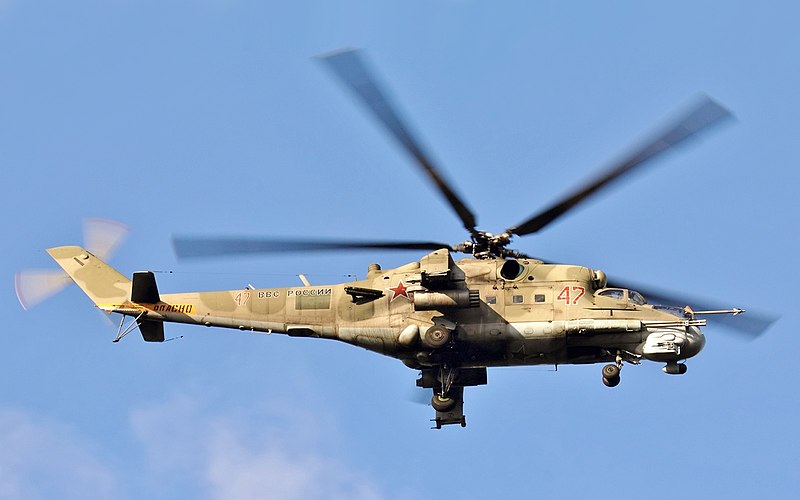
The Mil Mi-24 (Russian: Миль Ми-24; NATO reporting name: Hind) is a large helicopter gunship, attack helicopter and low-capacity troop transport with room for eight passengers. It is produced by Mil Moscow Helicopter Plant and has been operated since 1972 by the Soviet Air Force and its successors, along with 48 other nations.
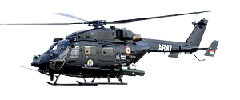
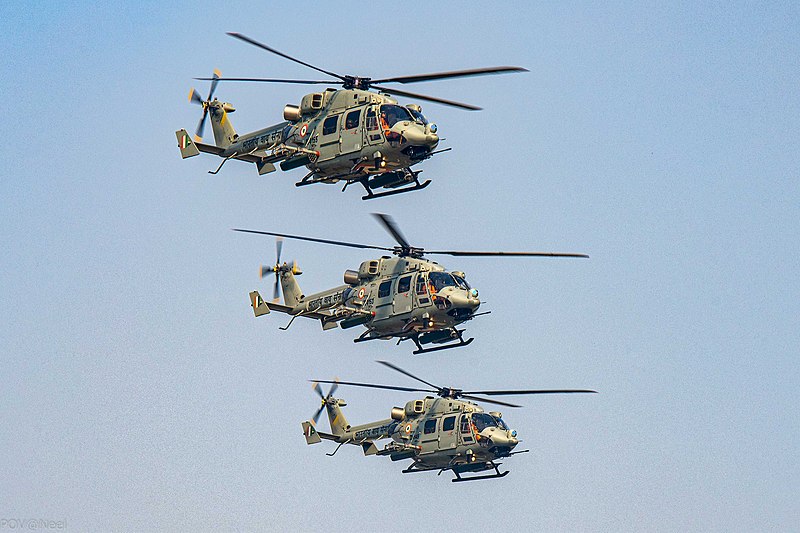
The HAL Rudra, also known as ALH-WSI, is an armed version of HAL Dhruv which is designed and manufactured by Hindustan Aeronautics Limited (HAL). Rudra is equipped with forward looking infrared (FLIR) and Thermal Imaging Sights Interface, a 20 mm turret gun, 70 mm rocket pods, anti-tank guided missiles and air-to-air missiles.
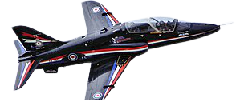
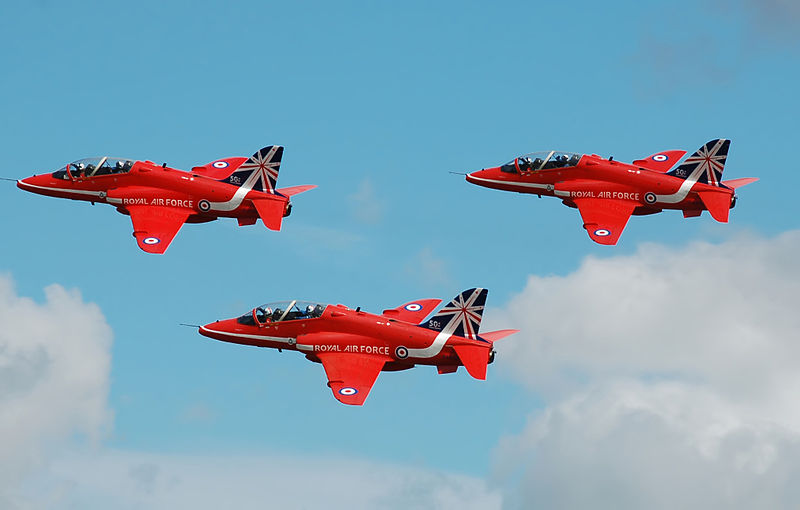
The BAE Systems Hawk is a British single-engine, jet-powered advanced trainer aircraft. It was first flown at Dunsfold, Surrey, in 1974 as the Hawker Siddeley Hawk, and subsequently produced by its successor companies, British Aerospace and BAE Systems. It has been used in a training capacity and as a low-cost combat aircraft.
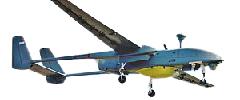
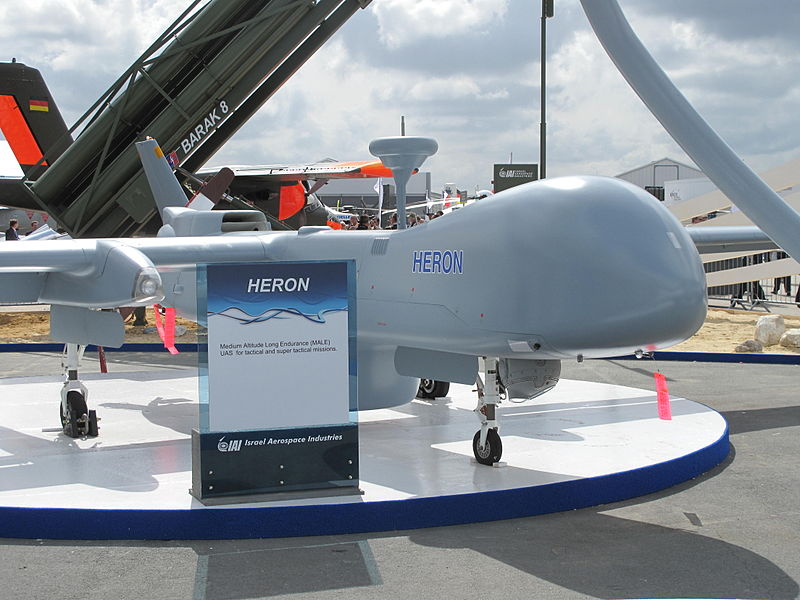
The IAI Heron (Machatz-1) is a medium-altitude long-endurance unmanned aerial vehicle (UAV) developed by the Malat (UAV) division of Israel Aerospace Industries. It is capable of Medium Altitude Long Endurance (MALE) operations of up to 52 hours' duration at up to 10.5 km (35,000 ft). It has demonstrated 52 hours of continuous flight, but the effective operational maximal flight duration is less, according to payload and flight profile. An advanced version, the Heron TP, is also known as the IAI Eitan.

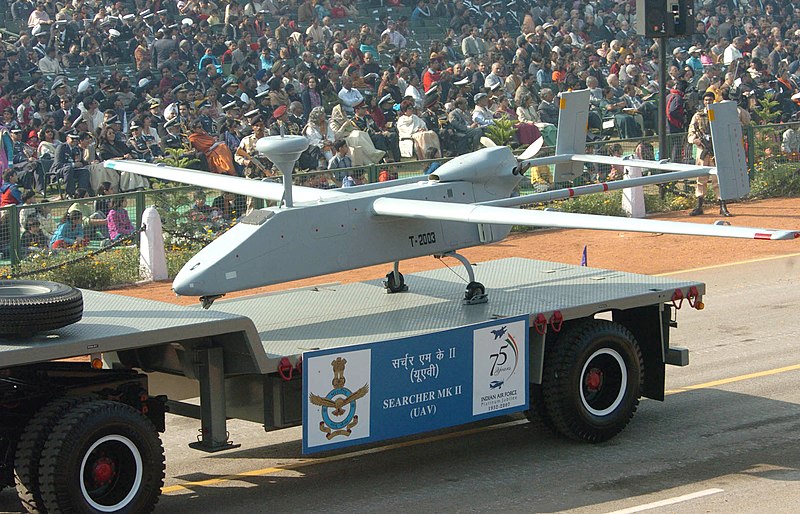
The IAI Searcher (also known by the Hebrew name מרומית Meyromit - "Marsh tern", or officially in Israel as the חוגלה Hugla - "Alectoris") is a reconnaissance UAV developed in Israel in the 1980s. In the following decade, it replaced the IMI Mastiff and IAI Scout UAVs then in service with the Israeli Army.